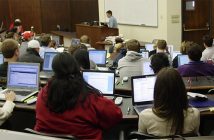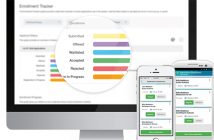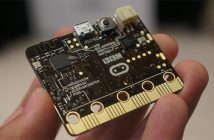
Just like the students they educate, teachers also need tailor-made support to increase their knowledge and potential — and one of the most effective ways to get it is not by sitting in classrooms but by interacting with peers and professional mentors.
The Cambridge, MA-based start-up BetterLesson turned the idea into a successful business model which led to a recent capital injection of $6 million in a Series A round. Reach Capital, New Markets Venture Fund, Dell Foundation, Scott Cook and his wife were among the investors. Cook is a returning investor, confirmed Alex Grodd, co-founder and CEO of BetterLesson, who two years ago helped the same company develop an innovative professional development service called TeachCycle.
After this round, BetterLesson has raised a total of $11 million in equity funding. In addition to that, The Gates Foundation and The Learning Accelerator have granted the company $4.25 million.
TeachCycle is a three-step process (Teach-Measure-Learn) that allows teachers explore new strategies and ideas, gather data and measure effectiveness, and discuss with their mentors what they have learned. This framework turned into the foundation for PersonalizedPD, BetterLesson’s updated professional development service offering a wide range of new features.
As its official website reads, PersonalizedPD offers personalized coaching for teachers to help them take their learning straight to the classroom.
Depending on an educator’s instructional profile and previous experience, they are paired with personal mentors who assist them define and set classroom challenges and goals. They meet online each week for 45 minutes to discuss progress. The coaches give feedback, advice and ideas for improvement. During the rest of the week, teachers share experiences, video materials, and students’ work to prove how they have implemented the strategies. A PersonalizedPD app also functions as a digital portfolio for teachers to show their progress, writes Tony Wan of the EdSurge.
BetterLesson has signed contracts with more than 24 U.S. school districts and has also partnered with National Education Association to use PersonalizedPD in another nearly 80 regions, notes Jeff Engel of Xconomy. Based on the number of the subscribed teachers, the company charges schools an annual fee.
BetterLesson CEO and co-founder Grodd commented:
“Helping teachers improve is ultimately about changing entrenched adult behavior. K-12 professional development isn’t delivering what teachers want. One conference, webinar or online course is never going to change adult behavior in a meaningful and lasting way.”
According to a 2015 survey among 4,500 teachers nationwide, 90 percent of educators admitted that technology was vital for the classroom success. In addition, more than two-thirds of the participants said they wanted to integrate technology into their lessons, but they needed assistance and more training, writes Meghan E. Murphy of Slate.
The educators who managed to add technology to their classrooms confirmed they spent their spare time identifying how to use the new tools – and they were not compensated for those efforts.
A report by the nonprofit organization TNTP found out that on average, districts spend $18,000 per teacher for professional development each year. However, less than 50 percent of educators said these experiences were relevant and fruitful. According to the TNTP data, the top 50 districts in the country spend $8 billion of the taxpayers’ money on teacher development. The Gates Foundation estimated that $18 billion was spent annually for K-12 professional development.
As Grodd concluded in an interview with EdSurge, there was little return. He predicted increased market opportunities for companies like BetterLesson, and the company is planning to expand its current team of 33 full-time employees.




